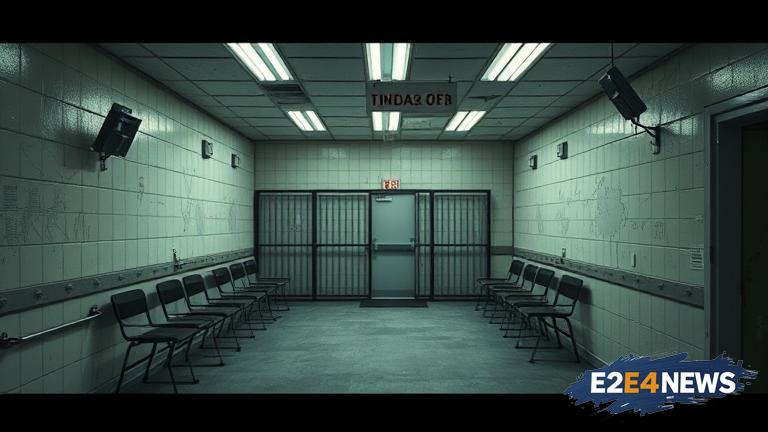The immigration court system in the United States has long been shrouded in secrecy, with many questioning the fairness and transparency of the proceedings. Recently, a rare glimpse into one such court has shed light on the harsh realities faced by immigrants detained by Immigration and Customs Enforcement (ICE). The court, located in a nondescript building, is where the fate of thousands of immigrants is decided every year. Many of these individuals have been detained for months, even years, without access to adequate legal representation or due process. The court’s proceedings are often chaotic, with multiple cases being heard simultaneously, and interpreters struggling to keep up with the rapid-fire questioning. Immigrants are frequently forced to defend themselves against complex legal charges, without the benefit of counsel. The judges, who are appointed by the Department of Justice, often appear biased towards the government’s case, leading to accusations of unfairness and lack of impartiality. The use of video conferencing technology has become increasingly common, allowing ICE to detain immigrants in remote facilities, far from their families and legal representatives. This has raised concerns about the ability of immigrants to receive a fair hearing, as technical issues and language barriers can hinder their ability to participate in the proceedings. Despite these challenges, many immigrants continue to fight for their right to remain in the United States, often citing fears of persecution or violence in their home countries. The court’s decisions can have far-reaching consequences, with deportations often resulting in the separation of families and the disruption of communities. The controversy surrounding the immigration court system has sparked heated debate, with many advocating for reform and greater transparency. Some have called for the establishment of an independent immigration court system, separate from the Department of Justice, to ensure greater impartiality and fairness. Others have pushed for increased funding for legal representation and interpreter services, to help level the playing field for immigrants. As the debate rages on, the lives of thousands of immigrants hang in the balance, their futures uncertain and their rights often ignored. The need for reform and greater accountability has never been more pressing, as the immigration court system continues to struggle with issues of due process, fairness, and human rights. In recent years, the number of immigration cases has skyrocketed, placing a significant burden on the court system. This has resulted in lengthy delays and a significant backlog of cases, leaving many immigrants in limbo. The use of detention as a means of enforcing immigration laws has also been criticized, with many arguing that it is inhumane and unnecessary. As the United States continues to grapple with the complexities of immigration policy, the need for a fair, transparent, and humane system has never been more urgent. The immigration court system is in dire need of reform, and it is up to policymakers and advocates to push for change. By shedding light on the secretive world of immigration courts, we can begin to build a more just and equitable system, one that prioritizes the rights and dignity of all individuals, regardless of their immigration status. The road to reform will not be easy, but it is a necessary step towards creating a fairer, more compassionate society. As we move forward, it is essential that we prioritize the needs and rights of immigrants, and work towards creating a system that is truly just and equitable. The fate of thousands of immigrants depends on it, and it is our collective responsibility to ensure that their rights are protected and their dignity is upheld. By working together, we can create a better future for all, one that is built on the principles of fairness, justice, and humanity.





